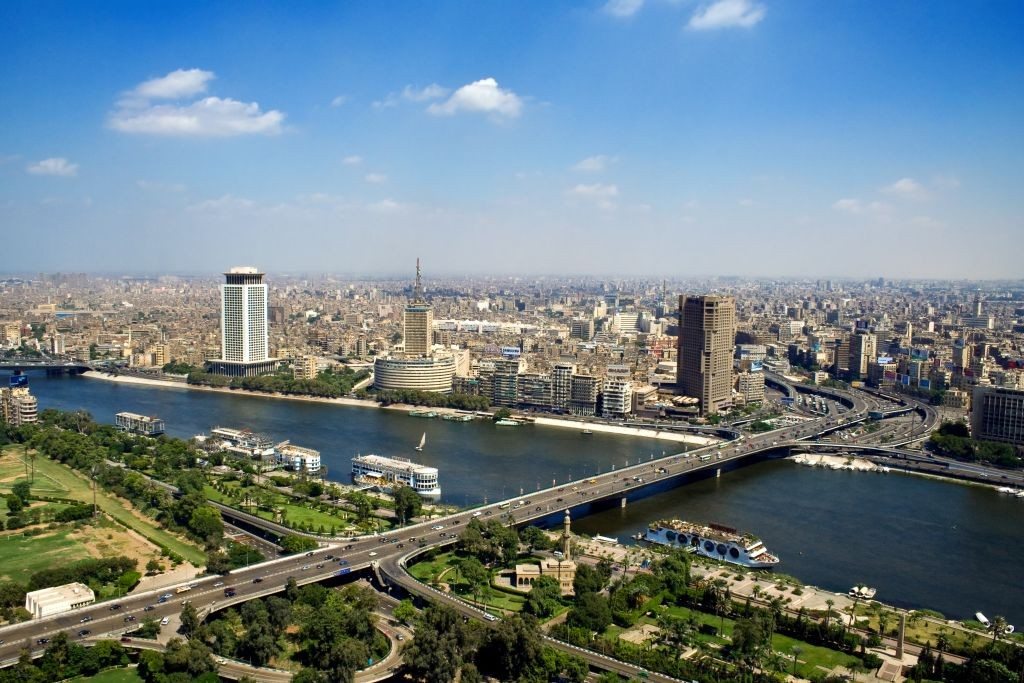Egypt faces a bumpy road towards economic recovery but is still a viable option for UAE and GCC investment in its construction sector, which can promote stability, the experts have insisted.
The numbers don’t lie. Per the United Nations, Egypt, the Middle East’s most populous country, has 82.5 million inhabitants, and could have 100 million by 2025. According to a report by Arqaam Capital, the country has a young population base, with 50% under the age of 24.
This creates scope for mid-range and affordable housing developments, which will drive demand for residential space in Egypt and account for about 90% of overall property demand.
“The initial developments were more around the high end, but there’s certainly scope for affordable housing, and I would suggest that affordable housing is actually a need there,” says Chris Seymour, partner at EC Harris.
A key driver of investment in Egypt’s property sector is the growing population.
“The demographic argument is extremely strong,” Seymour says. Egypt has “very, very strong domestic demand and that’s what makes it one of the attractive locations.”
Others agree that Egypt needs more affordable housing.
“There’s going to have to be housing for various levels of income,” says Dr Theodore Karasik, a senior adviser at Risk Insurance Management. “There has to be also housing programmes or housing constructed and built for low-income families so that everyone has an ability to have useful and healthy living conditions.”
UAE and GCC investors can play a key role in revitalising Egypt’s economy by developing housing projects in the country.
“Egypt’s economy seems to be moving in a positive direction. Part of that is thanks to GCC support for the economy of Egypt. The UAE particularly is in the lead in investments in Cairo and in Egypt in general,” Karasik says.
The UAE has already demonstrated interest in Egypt’s housing market. Some of the upcoming projects include Arabtec’s $40 billion housing scheme to provide affordable accommodation in the country, with a view to building a million homes within the next five years.
UAE developer Emaar’s Egyptian subsidiary Emaar Misr is also working on projects in the country, such as its Marassi and Mivida developments. Moreover, Majid Al Futtaim, the Dubai-based retail group, plans to open malls in Egypt in coming months, The National reports.
Other countries seem to be following suit: “There have been substantial aid and FDI commitments from key GCC states towards Egypt, which in our view are highly supportive of macroeconomic recovery,” says Mohammad Kamal, executive director at Arqaam Capital.
Egypt itself has also been actively trying to boost the economy. Investment in infrastructure, including the Suez Canal expansion and a large-scale road development project, is a significant part of President Abdel Fattah el-Sisi’s plan for recovery.
Issues
There are multiple challenges facing development in Egypt, however, understandably giving foreign investors the jitters. Security is one of the key concerns.
“Egypt seems to be stabilising under el-Sisi, despite the fact that you have terror attacks in the Sinai against Egyptian soldiers and the violence that’s occurring in and around the Egyptian-Libyan border,” Karasik says.
Apart from the security issues, another major challenge for Egypt is upgrading its infrastructure – the country has been grappling with an energy crisis and frequent power shortages. Analysts agree that this needs to be addressed.
“Egypt is facing severe issues in terms of power shortages, and there is no immediate solution in sight. [But] this crisis presents a number of opportunities, especially in alternate sources of energy that can lead to a reduction in the import bill and wasteful subsidies,” says Abhay Bhargava, associate director and regional head – Energy and Environment Practice, MENA at Frost & Sullivan. “The crisis also presents opportunities for private sector participation in the forecasted rapid increase generation capacity.”
Kamal echoes Bhargava’s comments about the scope for infrastructure investment in the troubled country.
“From an opportunity standpoint, consumption and infrastructure spending are coming off a particularly low base in 2013. This suggests a massive growth opportunity across most sectors, rendering most projects highly viable from a commercial standpoint,” he says.
“Clearly the country needs to be in a sense rebuilt and restructured. So capitalising on the infrastructure that is required in, for example, electrical generation, transportation and tourism, is an important aspect of this renewal.”
“Egypt’s power shortages directly impact energy-intensive industries such as steel and cement,” Kamal adds.
“The knock-on effect of a rise in energy costs will ultimately be reflected in end product prices. Housing projects may experience a degree of cost inflation which may be passed on to the end buyer.”
The road to stability
However, there may still be light at the end of the tunnel. Investment in the country’s construction sector could boost stability via job creation. This would be beneficial for the Middle East, Karasik says. A content population not struggling with unemployment could be the key.
“With the unemployment issue… this of course is going to take time to fix. What is happening is that, with the advent of projects in the construction sector, there’s more opportunity to employ people, and over time this will eat away at some of the unemployment problems,” he says.
Solving Egypt’s unemployment issues would then naturally lead to more stability in the MENA region, particularly in North Africa. This would obviously be beneficial to the GCC states.
“The GCC has a vested interest in making sure that Egypt is stable. It’s a key to stability in the core of the Middle East, and it also signals the desire to make sure that all of North Africa ultimately remains stable,” Karasik adds.
He seems positive that Egypt’s economy will regain momentum after the period of turmoil.
“In five years, I think Egypt will be on its way to greater economic growth. It might be slow in the midterm. But it seems that with El-Sisi as president and with potential political reform and continued investment in infrastructure projects, I think we should be optimistic,” he concludes.

